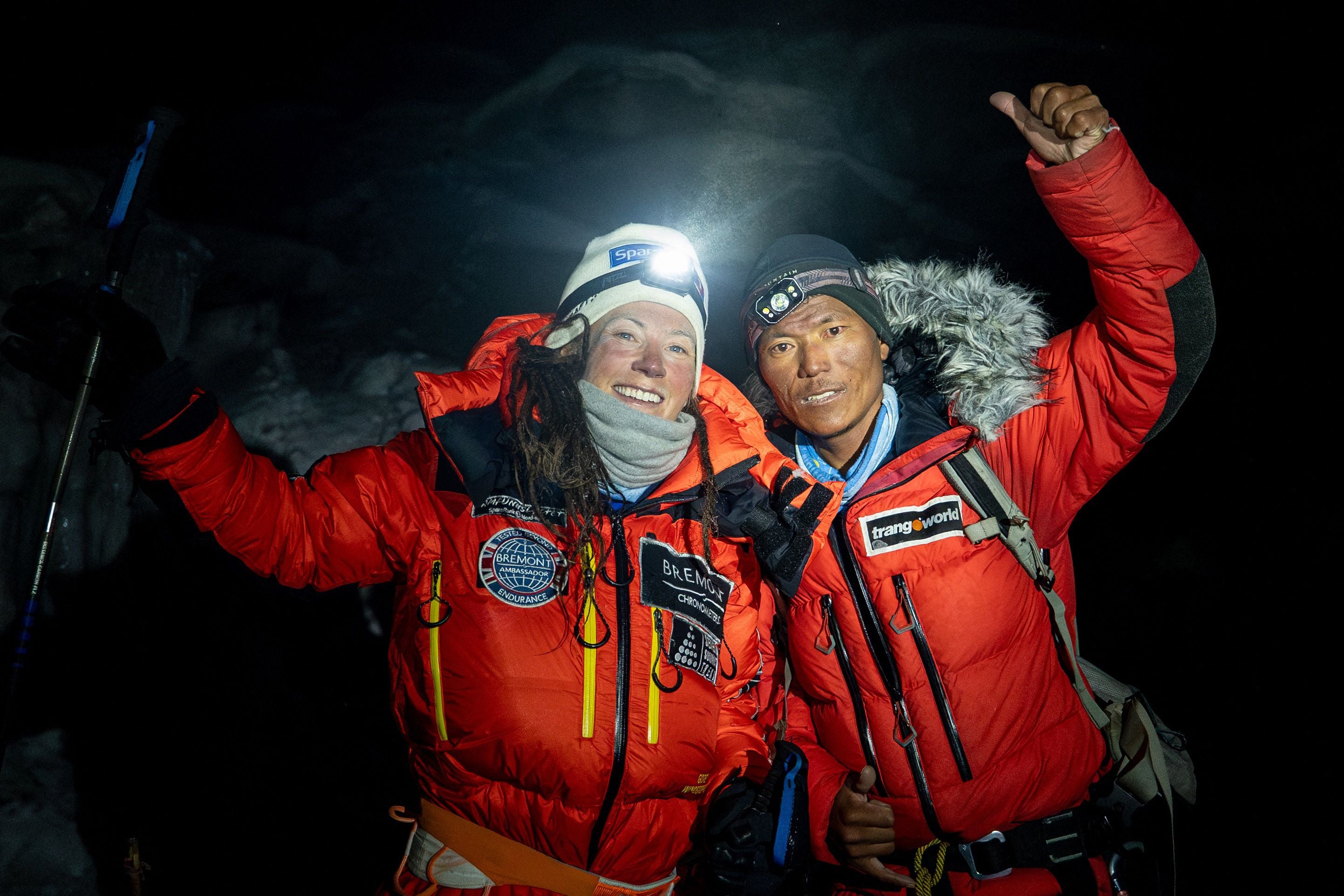Climber denies stepping over dying porter on K2 – saying danger of mountain meant team ‘had to split up’
Kristin Harila says her cameraman stayed to help Muhammad Hassan but it was ‘impossible’ for a number of people to be on the ‘very narrow trail’

Your support helps us to tell the story
From reproductive rights to climate change to Big Tech, The Independent is on the ground when the story is developing. Whether it's investigating the financials of Elon Musk's pro-Trump PAC or producing our latest documentary, 'The A Word', which shines a light on the American women fighting for reproductive rights, we know how important it is to parse out the facts from the messaging.
At such a critical moment in US history, we need reporters on the ground. Your donation allows us to keep sending journalists to speak to both sides of the story.
The Independent is trusted by Americans across the entire political spectrum. And unlike many other quality news outlets, we choose not to lock Americans out of our reporting and analysis with paywalls. We believe quality journalism should be available to everyone, paid for by those who can afford it.
Your support makes all the difference.A mountaineer has denied claims that her team stepped over a dying porter to conclude a record-breaking ascent of K2, saying that the dangers posed by the mountain had ultimately forced them to split up but they had “made sure” he was not left without help.
Kristin Harila, a Norwegian mountaineer, along with her guide Tenjin Sherpa, became the fastest climber to scale the world’s 14 mountains exceeding 8,000 metres – in just 92 days – with the final climb being up K2 at the end of last month.
Muhammad Hassan was part of a separate team climbing K2 ahead of Ms Harila’s group on 27 July. He slipped on a narrow ledge, falling several metres before becoming tangled in ropes and eventually dying on the mountain.
Speaking to Sky News, Ms Harila – a former professional skier – said she was “just behind” Mr Hassan as he fell and was left hanging upside down, and detailed her and her team’s successful bid to turn him around, and provide him with oxygen and water, in potentially life-threatening conditions.
But having received radio messages that their rope-fixing team were having problems up ahead following an avalanche, they decided it would be safer to split up and for Ms Harila to continue the ascent, rather than potentially block the narrow passage and impede any rescue attempts. Following the radio messages, Ms Harila said, “We had to make a decision to split up.”
She added that the accident had occurred on “a very, very narrow trail” and said it was “impossible” for 10 people to help “because [there] is only room for one behind and one in front”.
Ms Harila said that her camera operator, Gabriel, had stayed at the dangerous bottleneck with Mr Hassan for around two and a half hours while other climbers in various groups attempting to summit the mountain had filed past. Ms Harila said the “heroic” cameraman gave Mr Hassan warm water and shared his oxygen by giving him his own mask.
“This is probably the most dangerous part of K2, and K2 is probably the most dangerous mountain of all the [8,000-metre peaks]. “We know it’s very risky to stay there, but we had to try to save him,” Ms Harila said.

Ms Harila had previously condemned the spread of “hatred” and “misinformation” following claims from Austrian climbers Wilhelm Steindl and Philip Flamig, who were present that day on K2, that the 27-year-old porter had been treated like “a second-class human being”.
Mr Flamig told Austria’s Standard newspaper that Hassan was “treated by one person while everyone else was pushing towards the summit”, adding: “The fact is that there was no organised rescue operation although there were Sherpas and mountain guides on site who could have taken action.”
“I don’t think people understood the gravity of what was happening with Hassan as they were climbing, and that is why we see they are stepping over him to reach safety on the other side,” Ms Harila said in a statement on Instagram before she spoke to Sky News.
“Gabriel stayed with them as long as he could before he had to leave to get more oxygen for his own safety,” she added, “on snow that can collapse below you at any time.
“This was very, very traumatic for everyone involved and I can only imagine the physical and mental strength it took for Gabriel to do something so heroic and kind.”

Further up the peak, she said, “we heard that Hassan was getting all the help he could. Very soon after we reached the summit, Gabriel joined us. I asked him if they got Hassan up and he had said yes. I asked if he was alive, and Gabriel said that he was, but that he was in a very difficult situation.
“We understood that he might not make it down. It was heartbreaking.”
She added: “It was only when we came back down that we saw Hassan had passed and we were ourselves in no shape to carry his body down. We had done our best, especially Gabriel. It is truly tragic what happened, and I feel very strongly for [Hassan’s] family.”
Located in the Karakoram range in Pakistan’s Gilgit-Baltistan, K2 is also known as “Savage Mountain” and is said to be the deadliest of all the major peaks, having first been summited in 1954.
Nearly one in six attempts to summit K2 are fatal, compared with one in 34 for Everest, The New York Times reported in 2021.




Join our commenting forum
Join thought-provoking conversations, follow other Independent readers and see their replies
Comments